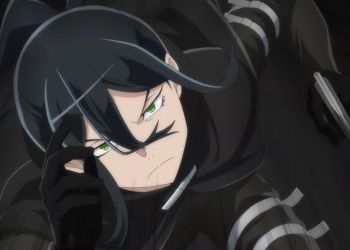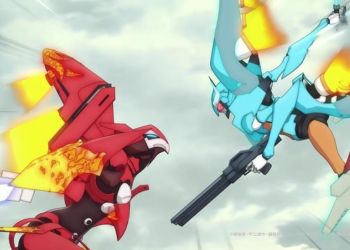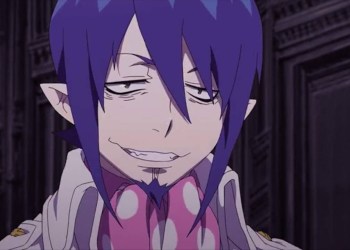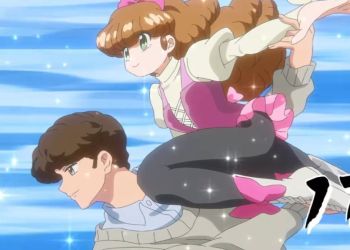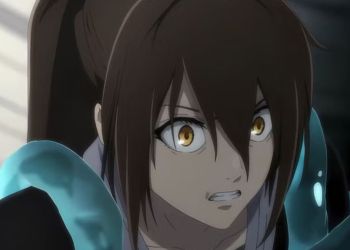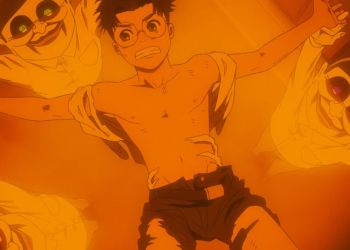There has been no character on Attack on Titan who has received as much hate as Gabi Braun. Gabi Braun is the little Marleyan Warrior from Liberio Interment Zone who is rumoured to get the powers of the Armour Titan. She is also the cousin sister of Reiner Braun, who along with Annie Leonhart and Bertholt Hoover, destroyed Wall Maria.
What did Gabi do that made her so hated in the AoT fanbase?
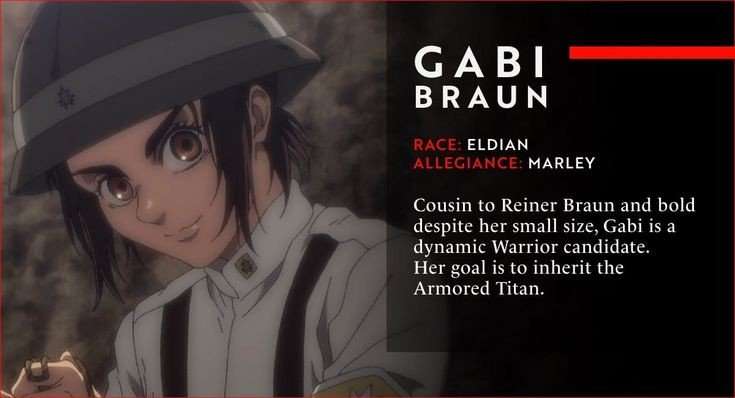
In Attack on Titan Season 4 Episode 8, she and Falco Grice managed to come up the Battleship using a dead soldier’s ODM gear. Then, Gabi aimed her gun at the celebrating Survey Corps members and shot Sasha aka the “Potato Girl“. Unfortunately, Sasha couldn’t make it and died in a tragic turn of fate, her last words being “meat”.
As Sasha’s assassin, Gabi has since then received a torrent of hate from the huge Attack on Titan fanbase. But shouldn’t we rethink our opinions about Gabi and look deeply into what Isayama intends to show through her character? Like any Attack on Titan character, we need to understand her from a nuanced perspective before we form stubborn opinions on her.
Lessons We Can Learn From Her Character
Gabi Braun is very similar to Eren Yeager’s character early in the first and second seasons. Both of them share a deep and incredible hatred for some group of people or monsters and desire to annihilate all of them. Eren hated the Titans and vowed to rid humanity of them so that they can live in peace.
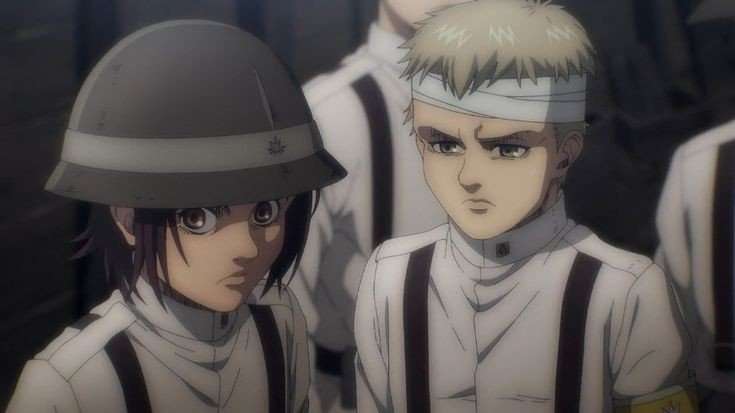
Gabi, on the other hand, hates the “Devils on Paradis”, the Eldians on Paradis Island because of the Marleyan government’s propaganda. When Reiner Braun tells his family that there were all kinds of people on Paradis, Gabi becomes concerned and asks him to reaffirm that they’re devils. This simple dinner conversation with his family exemplifies the Marleyan government’s effects on the self-image of the Eldians.
At the end of the day, Gabi is merely a product of her society. She’s just trying to make sense of her world and do what she believes is right, though her autonomy is questionable. The fact that we’re hating her character is proof of Isayama’s skill in making us uneasy about the “truths” of our protagonists.
